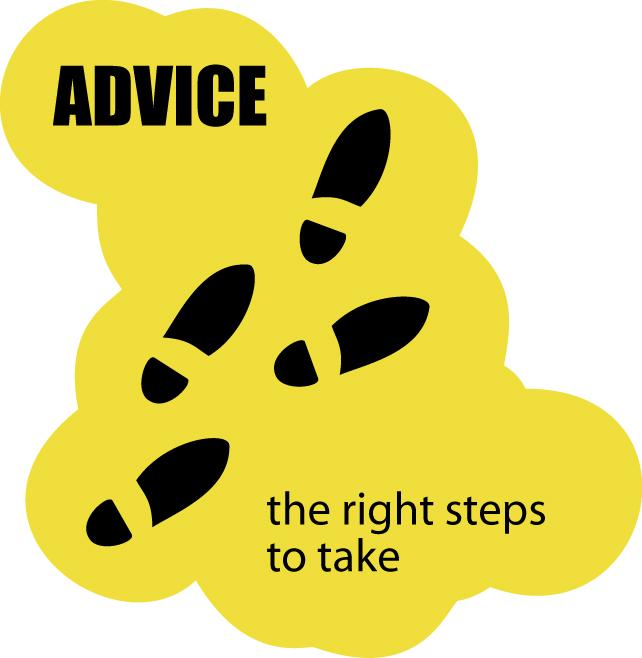Tag: back to school
Don't Bite the hand that feeds you: the importance of classroom respect

Respect in the classroom is supremely important! How many of us knows or knew of someone who totally blew their shot at passing a class simply because they were consistently rude and disrespectful to the teacher? There is always that one person who just seems to go way above board while assuming that their behavior or lack thereof will not affect their ability to attain a passing grade. In most of the cases that I have personally witnessed, the individuals had the potential to pass the class however, the incidents just led to their demise. Why is respect in the classroom important? There is an old saying of which I claim no credit for constructing, but I definitely utilize as a law to live by, "Don't bite the hand that feeds you!" In the classroom the teacher is in control of proceedings. Furthermore, they are the ones who are ultimately going to determine the grade that you are going to get. There is something to be said about being courteous to whoever is in charge of the space that you are in. This is a universal rule that will follow you throughout both your academic and professional careers. Additionally, students must understand that depending on the course the grading system is sometimes subjective. This means that getting a good grade can be more than just passing the tests. There can other factors at play:
The Twilight Zone - Sitting on the Front Row

The front row is an enigma. On the one hand: it is revered, highly coveted and most precious. Yet on the other: it is feared, treated like a plague and avoided at all costs. How can it be so polarizing? Allow me to explain.
When it comes to concerts, professional sports or an airplane the front row is prime real estate. It is where everyone wants to be and with this knowledge promoters, venue owners and airlines alike charge a premium for those who insist on sitting there. In fact, on the secondary market for front row tickets, prices reach astronomical levels and depending on the event, people will pay whatever it costs just to be there.
However when it comes to school and lectures the front seat becomes a haunted ghost town. Also, depending on the size of the classroom or the lecture hall some seats remain unoccupied, even when there are late comers.
Why the stark difference when it comes to school? It comes down to perception. It is almost understood that if you dare sit in the front of the classroom, you are a target for the teacher. There is nowhere to hide when a question is asked or if you forgot to do your assignment. This implies that being prepared to answer questions, participate in discussions and having any assignments completed on time are prerequisites for sitting on the front row. Surely this pressure is too much for the average student, why would you want to do the assigned readings or even read ahead in anticipation of a class discussion and furthermore, what does that teacher know anyway?
Ok, back to reality! Sitting in the front of the classroom is a bold statement to both the teacher and your classmates. It tells them that you mean business and that they can expect your effort to be just as strong as the statement that you are making. There are direct benefits to sitting up front:
These are just a few and in every specific setting there are more benefits that you can take advantage of.
As I close today I want to share with you this. I had a friend in university who decided that sitting up front of the classroom was not bold enough. After the first lecture of every new course, he introduced himself to the professor by saying, "Hi, I am John (not the real name) and I am going to get an A in your class.” What he was actually doing was announcing himself to the teacher and ensuring he did not get lost in the crowd of students. Subsequent to that introduction, he would maintain a constant rapport with the professor throughout the semester. It proved to be a very shrewd idea, because in some tough classes when he needed extra credit or extra time on an assignment, he was able to benefit from the fact that he had already established a relationship with the teacher. In contrast, some students who when faced with the possibility of failure tried to build relationships with the professor despite the fact that they: sat at the back of the class, routinely arrived late and were tardy with assignments, found that it was too late. Don’t let this be you!
We will delve more into this subject next time!
Until next time remember: As long as you have life, you should live it to your fullest potential.
The Best Advice I Ever Got
School can be a very intimidating place. It is supposed to be a place of learning and you are expected to be better off when you have graduated. School is where you make friends (and sometimes enemies) some who last for a lifetime. So how intimidating can it be? With standardize testing at pretty much every level ranging from elementary to tertiary level entrance exams, it seems as though students are pitted against everyone in their peer group from an early age, the results of which only serves to remind them of their ranking. Oh the pressure!
Imagine the nerve of the education boards to pit a student from a well to do private school versus a student from a "lowly" public school and they are supposed to be on an equal platform. One may have a tutor, parents that care and dedicated teachers behind them and the other is just scraping by with the bare minimum. Can you envision how intimidating this can get?
My mother is a very shrewd person. Having been a teacher for most of her career some 34+ years in all, I would definitely admit that she knows a thing or two about school. She has practically seen it all and she did her very best (along with my father who was also a teacher for 27 years) to ensure that I had the correct mindset when it came to school. There was one particular piece of advice that had a lasting impression on me and I will share this with you today: THE CLASSROOM IS THE GREAT EQUALIZER.
It is profound in its simplicity, but what does it mean? When many people look at standardized testing as a major problem, this piece of advice has forced me to look at it in an opposite light. The fact that in order to move to the next level everyone in your peer group has to take the same test means that you have an equal opportunity. This is reassuring because all perceived advantages or disadvantages are out of the window the moment the test begins. Something that you should be mindful of is that preparation is crucial. The students with all the trappings and support may be better prepared if taken at face value. But you should always assess your level of preparedness and take the required mitigating steps to reduce the handicap.
Another truth is that whether you made the bare minimum requirements of passing or you excelled with perfect grades; you start the next level with a clean slate. This is probably my most comforting fact about school. I can recall my days at university sitting in certain classes with "gurus", who despite the subject matter would pass with apparent ease while I would barely make the passing grade. But the pride I would have at the beginning of the next semester knowing that their A and my C from the previous class did not matter anymore and we both had to start a fresh. This definitely does not mean that you should have low aspirations, but if you know that you gave your best effort and it resulted in only a passing grade, hold your head high and move on.
So the next time you sit down in a classroom at the beginning of a semester or course, pay no mind to who is sitting next to you and whether or not they know more than you. It does matter, where they come from, their social status or what grade the made they semester before. The fact that you are exposed to the same information means that you have as good a chance as they do to moving on.
Until next time remember: As long as you have life, you should live it to your fullest potential.
It's Back to School Time
As the school semester is about to be opened (for some it may have already started) I have decided to dedicate a series of blog postings to students, specifically targeted to high school and post-secondary students as it relates to the next big step: the world of work.
I will preface today’s blog by saying this; I do believe that most of the learning we do is done outside of the classroom, however I am not one of those free thinkers who thinks that a structured education is not required. Frankly, a formal education is pretty much a must have. School is probably the first structured environment that we all find ourselves in and if nothing else, it tells potential employers and society at large that upon graduation, you can operate in a structured learning environment. That said it is up to the individual to decipher as to how far they go into the academic journey.
Individuals who are thinking about what field of study they want to pursue are advised to research the type of employment that they want to take up when they graduate and find out what qualifications they require. Your studies should generally be aligned with what you discover. The big challenge with this approach is that many students who are about to graduate high school, or have just entered university do not have any clue as to what they ultimately want to do professionally. Hence they trend toward what they like or are good at in hopes of it paying off in the long run.
How then do you avoid making a huge mistake and or wasting time by pursuing a particular direction to then change your mind? Truth is, even with the best planning situations/ideals can change. But as I mentioned in my book, HOW TO MAKE IT FROM THE CLASSROOM TO THE CUBICLE, you can only pick one at any given time. When you get into a car, it is impossible to drive in two directions at one time and you can only focus on one destination. The only time more than one destination is permissible is when the second comes after the first, and then the third after the second. This brings us right back to the original statement of you can only pick one at any given time. The same goes with picking a field of study and launching a career. But how do you prevent wasting time?
In my experience I found that the only sure way to fully evaluate if a particular profession is right for you; is to try. Internships, externships, co-ops or full-fledged work will reveal to you the skills, time commitment, stress, etc. required for a given profession and it is very advisable that you get one as early in your matriculation as possible. That way, if you complete an internship and you realize that the particular line of work is not for you, you can think of other disciplines within the same field, or even change direction all together if it is possible. Try not to pay attention to the actual position on these introductory jobs, because if you desire to be an engineer, you are probably not going to do exactly what an engineer does during an internship, but you will be exposed to the work environment which is equally important as the job itself.
The next best thing is to learn from others. There is nothing like learning from others. It saves you the stress and it is virtually low risk. However, the important questions to consider when looking at the experiences of others are:
- How successful is this person at their job?
- What motivates them (this is important because this may differ from yours)?
- What qualifications did they need to get that position and are they relevant today?
- What were the challenges faced?
Your approach may differ, but the general theme must be the same. You will never know until you try and it is only when you have gained some experience that you will get a sense for how comfortable you are. Best wishes on the new semester. Do your best and let God do the rest.
Until next time remember: As long as you have life, you should live it to your fullest potential.



